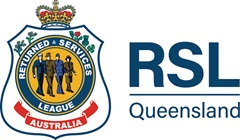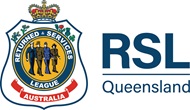
Research helps veterans reintegrate into civilian life
01 December 2020- Health & wellbeing
- Media release
Veterans have a greater chance of successfully transitioning thanks to world-first research funded by RSL Queensland.
The six-year Service to Civilian Life study – conducted by the Gallipoli Medical Research Foundation (GMRF) – has produced a groundbreaking new tool to measure adjustment after military service: the Military to Civilian Adjustment and Reintegration Measure (M-CARM).
GMRF Associate Director of Mental Health Research and Principal Researcher Dr Madeline Romaniuk said the study aimed to understand why some veterans transition to civilian life easily while others struggle, and to use this knowledge to develop methods to support veterans more effectively.
The M-CARM measures a variety of factors that are associated with successful adjustment from Defence service back to civilian life.
“For some, the journey from military service to civilian life can be a daunting prospect. ‘Civvy Street’ may seem at odds with the culture and familiar structure of Defence and can leave some veterans feeling a very real sense of loss; more than just a job, they lose their tribe, their purpose and their identity all at once,” Dr Romaniuk said.
“The psychological toll this takes can be devastating. Previously published research from the Departments of Defence and Veterans’ Affairs found that almost half of those transitioning will have a diagnosable mental health condition within the first five years following discharge.”
The Service to Civilian Life study is one of the world’s largest qualitative research projects into the transition process and was funded by RSL Queensland as part of a $14 million commitment to veterans’ mental health research.
The study identified the key protective factors for successfully reintegrating to civilian life and methods to target these factors.
This led to the development of the M-CARM, a scientifically robust method of measuring an individual’s psychological adjustment post service.
“This means we can use evidence-based yet personalised assessment and training methods to support former Defence members – facilitating the best chance of success after service,” Dr Romaniuk said.
RSL Queensland General Manager of Veteran Services Robert Skoda said the GMRF partnership delivered valuable insights for shaping the organisation’s service delivery.
“Understanding the underlying challenges of transition and reintegration, and the effect these have on Defence families, is critical if RSL Queensland is to provide appropriate and effective services,” Mr Skoda said.
“Our partnership with GMRF is a key pillar in our ongoing strategy to ensure a bright future and enduring legacy for all Australian veterans and their families.
“Over the past eight years, we have partnered with them to deliver world-first studies under two key research initiatives, helping us refine the services we deliver and how we deliver them.”
He said earlier this year, RSL Queensland had confirmed a new five-year partnership with GMRF to conduct comprehensive research into the impact of service on Defence families and expand existing studies into veteran health, transition and reintegration.
“There is limited Australian research into the impact of service on families and how they can successfully address the challenges they face.
“This new initiative aims to build upon our previous research and gain a better understanding of the challenges facing veterans and their families.”
GMRF CEO Miriam Dwyer said she was extremely proud of the enduring and ongoing partnership with RSL Queensland.
“Seeing the positive impact of applying research findings to enhance frontline services is a source of great pride for the entire GMRF team. It is a clear demonstration of ‘research in action’.”
Related News
Loading

